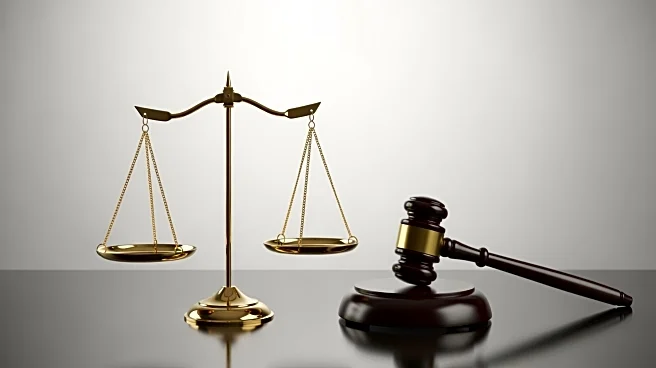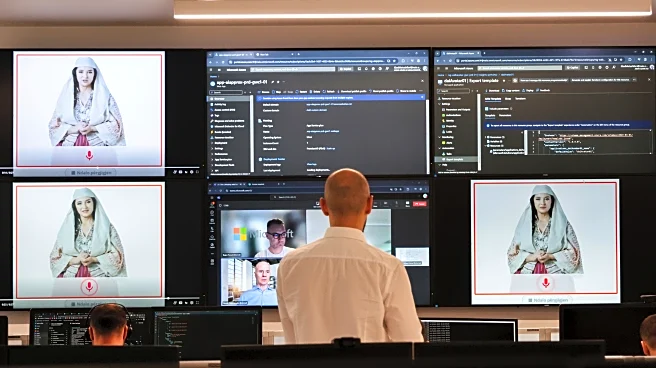What's Happening?
The Trump administration has filed an emergency appeal with the Supreme Court to dismiss Shira Perlmutter, the director of the U.S. Copyright Office. This move follows a decision by the U.S. Court of Appeals
for the District of Columbia Circuit, which ruled that Perlmutter could not be unilaterally fired. The administration argues that despite the office's ties to Congress, the director exercises executive power in regulating copyrights. Perlmutter claims her dismissal was due to President Trump's disapproval of her advice to Congress on artificial intelligence. The appellate court's decision to allow her to remain in her position while the case proceeds highlights the ongoing legal battle over executive authority in federal appointments.
Why It's Important?
This case underscores the ongoing tension between executive authority and legislative oversight in federal appointments. The Trump administration's attempt to dismiss Perlmutter raises questions about the separation of powers, particularly regarding the influence of the executive branch over offices that advise Congress. The outcome of this case could set a precedent for future disputes over the firing of federal officials, potentially impacting how executive power is exercised in relation to legislative functions. Stakeholders in the copyright industry and legal experts are closely monitoring the case, as it may affect the stability and independence of advisory roles within the government.
What's Next?
The Supreme Court's decision on whether to hear the case will be pivotal. If the court sides with the Trump administration, it could lead to Perlmutter's dismissal and potentially alter the balance of power between the executive and legislative branches. Conversely, if the court upholds the appellate decision, it may reinforce the protection of legislative advisory roles from executive interference. The case is likely to attract attention from political leaders, legal scholars, and industry stakeholders, who may weigh in on the implications for governance and the administration of copyright law.
Beyond the Headlines
The legal battle over Perlmutter's position may have broader implications for the role of expertise in government advisory positions. Her dismissal, if upheld, could discourage experts from taking on advisory roles due to fears of political interference. This could impact the quality of advice provided to Congress on complex issues like artificial intelligence and copyright law, potentially affecting policy development and legislative decision-making.









